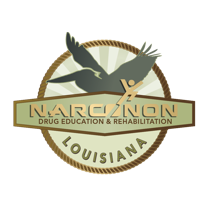Addiction and Abuse Effects Children

Dealing with the chaos and unpredictability of their home life, children receive inconsistent messages. They can feel guilt and shame trying to keep the family “secrets.” Often, they feel abandoned due to the lack of emotional care as the family is distracted by either using or dealing with use in the family. If the family breaks up because of alcohol or substance abuse, or if the children are removed from the home, some become withdrawn and shy, while others can become explosive and violent. They often develop issues with self-esteem, attachment, honesty and trust.
What do you tell children when one or both of their parents are alcoholics or addicts? How do you explain the chaos? Because trust is almost always an issue, you tell them the truth.
Children in homes with substance abuse need to know it’s okay to talk about the problem, without having to feel scared, ashamed, or embarrassed. They do not need to lie or cover up and keep the secrets they were taught to hide.
They should be encouraged to find someone they trust—a teacher, counselor, foster parent, or members of a peer support group. One misconception many alcoholics and addicts seem to have is their drinking or substance abuse is not affecting anyone else. Many times, they will make statements like, “I’m not hurting anyone but myself!” But the truth is, it hurts everyone around them; family, friends, employees, co-workers and their children.
Those most vulnerable to the effects of alcoholism or addiction are their children. If you have a drinking or a substance problem and you have children in your home, they are being affected, sometimes so profoundly that the effects last their entire lifetimes. As a parent, you owe it to your children to get clean as this will decrease the damage you may do to them.
It is possible for the child of an addict to come through intact as a healthy adult, although many of these children suffer long-lasting consequences. While the cycle of addiction is often passed on from parent to child, it can be disrupted with early and proper intervention.
It’s estimated that 25 percent of youth under age 18 are exposed to family alcohol abuse or dependence. Research shows that children in this environment are more likely to develop depression or anxiety in adolescence and use alcohol or other drugs early on. Having a parent who is addicted to drugs or alcohol can lead to lifelong problems if the child or teen doesn’t get help and support.
Do it for the children who are our future. They have a hand in creating a better, healthier life for future generations.
